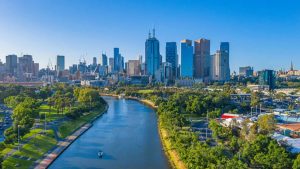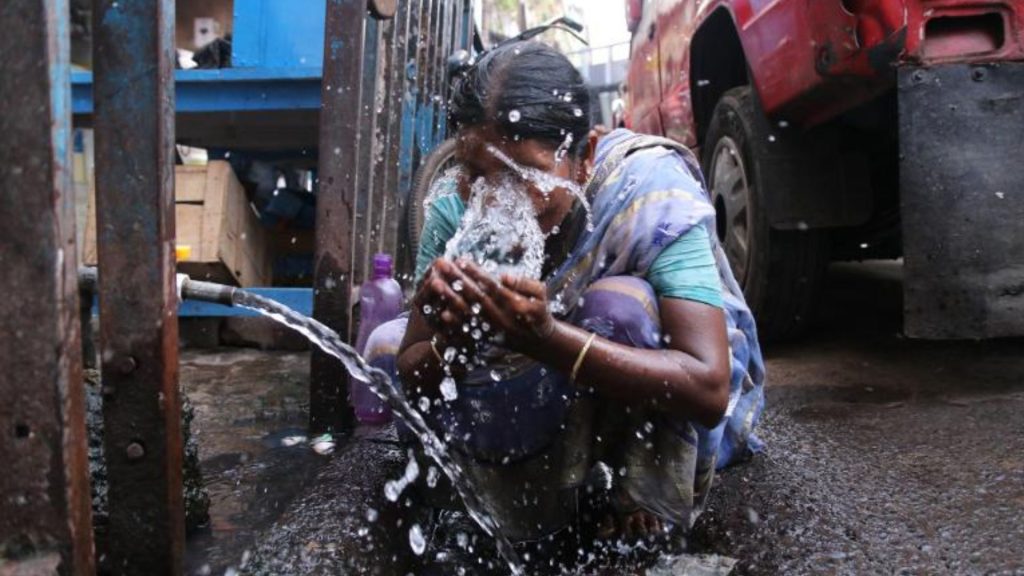
Clean Water Access Projects
Access to clean water is a fundamental human right, yet millions of individuals in underprivileged communities around the world still lack this basic necessity.
Earth5R is committed to addressing this pressing issue through its innovative clean water projects and collaborative programs.
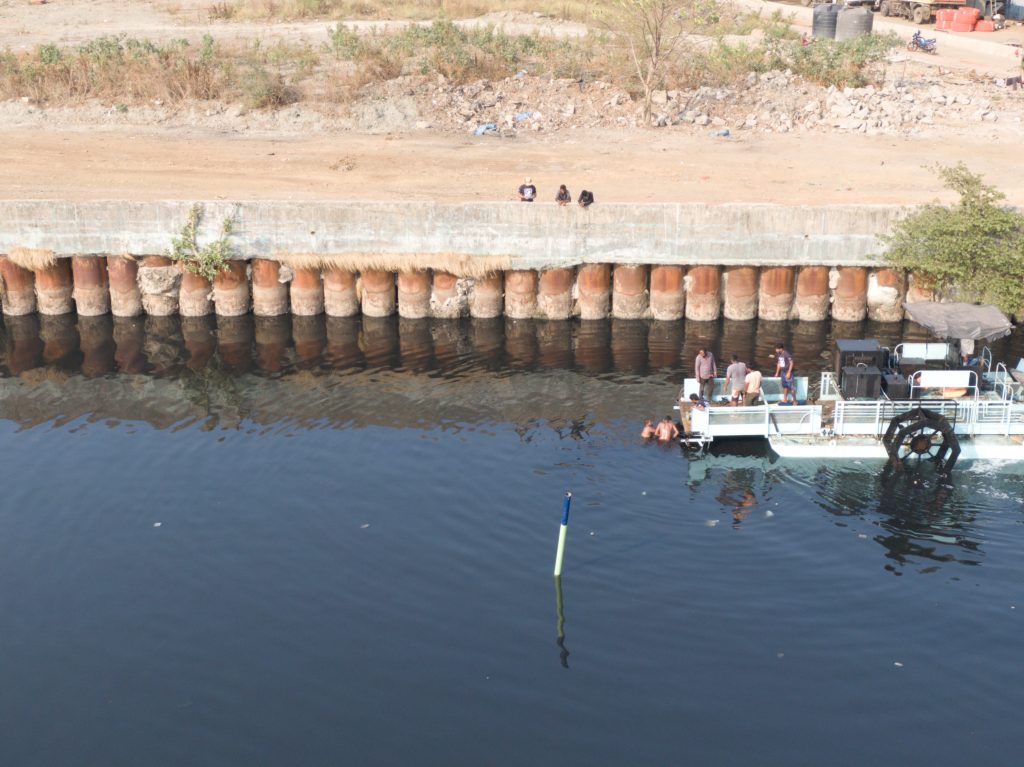
The Earth5R installation project along the Mithi River in Mumbai.
Earth5R’s Clean Water Initiatives
By installing water purification systems, implementing rainwater harvesting units, and restoring local water bodies, Earth5R strives to improve clean water access for those in need.
From installing water purification systems to spearheading rainwater harvesting programs and restoring local water bodies, Earth5R is committed to making a tangible difference in improving clean water access.
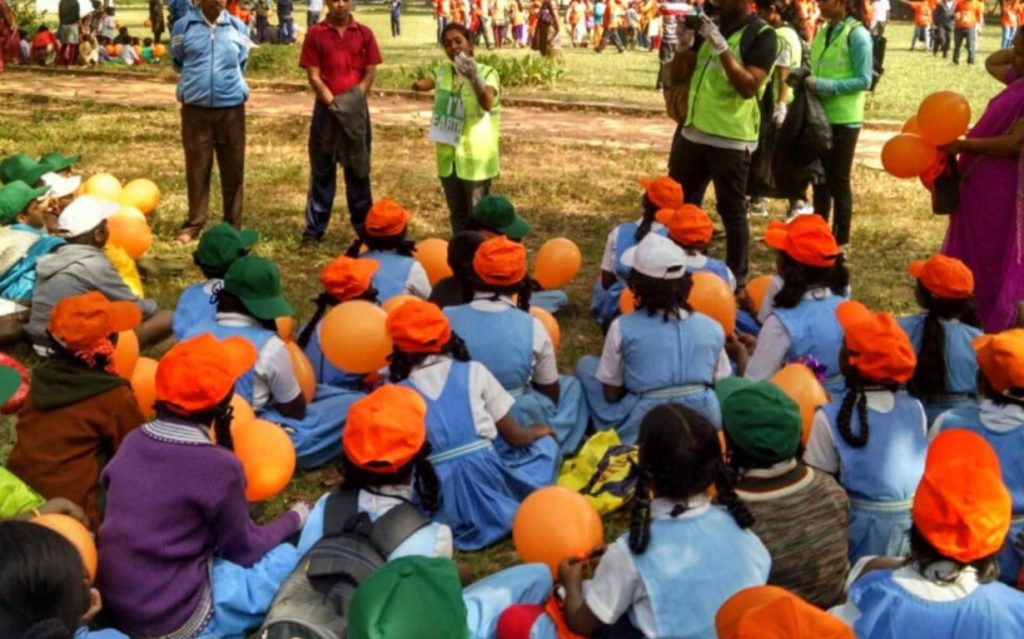
Earth5R led a rainwater harvesting awareness program in Bangalore.
Water Challenges in Indian Cities
Water scarcity is a pressing global issue affecting over 2 billion people who lack access to safely managed drinking water services, leading to approximately 829,000 deaths annually from waterborne diseases.
Over 40% of the global population resides in water-stressed regions, where demand exceeds supply, with the agriculture sector, accounting for 70% of global water withdrawals, particularly impacted.
The economic toll of water scarcity amounts to an estimated $260 billion yearly, while climate change exacerbates the problem, increasing the frequency of droughts and diminishing rainfall in some areas.
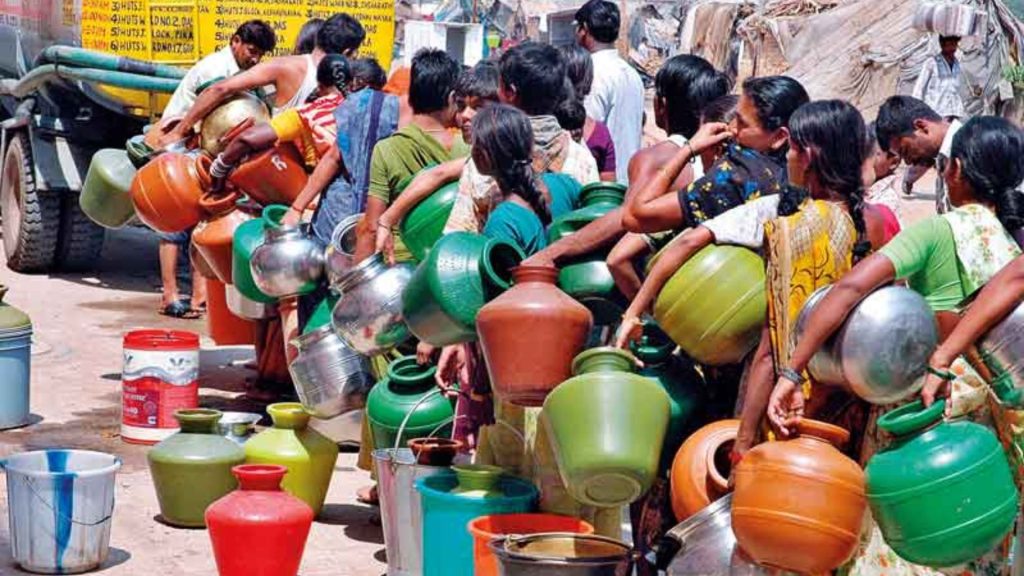
People Line up, Waiting for access to water
These realistic data points underscore the urgency of implementing sustainable water management practices, conservation efforts, and infrastructure investments to ensure equitable access to clean water and mitigate the far-reaching impacts of water scarcity on health, livelihoods, and the environment.
Importance of Corporate Involvement
Corporates have a crucial role to play in addressing the pressing issue of access to clean water, considering its fundamental importance for human health, economic development, and environmental sustainability.
In India, where water scarcity and pollution pose significant challenges, corporates can contribute to water access initiatives through funding, technology deployment, and community engagement.
With over 7,000 rivers across the country, including major ones like the Ganga, Yamuna, and Brahmaputra, India’s water resources are vast but face increasing threats from pollution, over-extraction, and climate change.
In cities like Delhi, Mumbai, Pune, Kolkata, Chennai, Bengaluru, Hyderabad, Ahmedabad, Surat, Jaipur, Lucknow, and Patna, water supply often relies on rivers, reservoirs, and groundwater sources.
However, rapid urbanization, industrialization, and inadequate infrastructure lead to issues such as water pollution, depletion of groundwater, and unequal distribution of water resources.
Millions of people in these cities experience water-related challenges, particularly in low-income areas and informal settlements, where access to clean water and sanitation is limited.
For example, in Delhi, nearly half of the population relies on unreliable water supply from tankers or borewells, leading to disparities in access and quality.
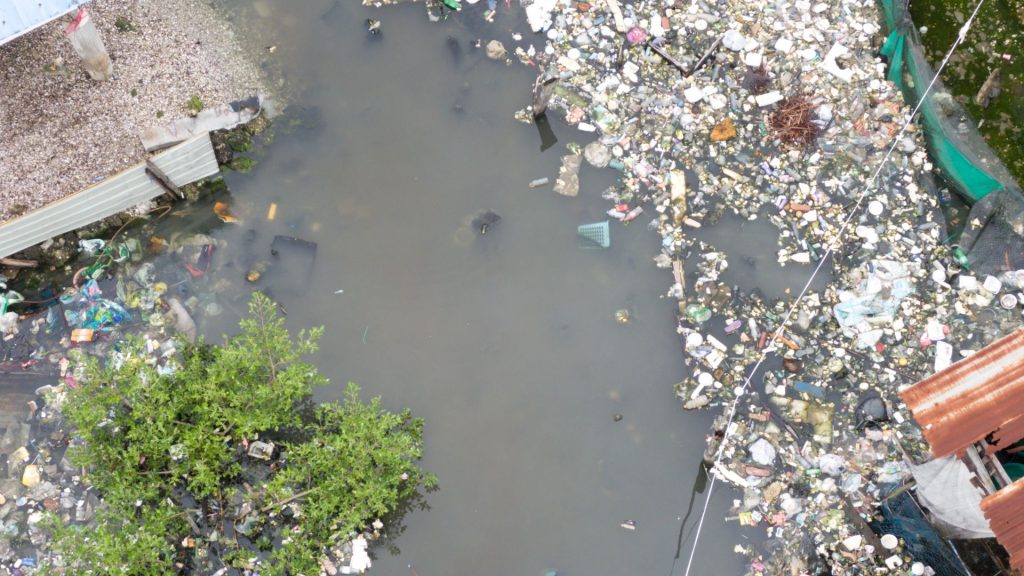
River Water Contamination, Mumbai
In Mumbai, water contamination and leakages in the aging distribution network contribute to supply shortages, impacting both residents and industries.
Water-related challenges requires a multifaceted approach and the implementation of various solutions.
One crucial aspect is conducting regular clean-up initiatives of water bodies, which play a significant role in removing plastic waste and restoring water accessibility.
These clean-up efforts help mitigate pollution, improve water quality, and safeguard aquatic ecosystems.
Also, they contribute to enhancing public health and ensuring the availability of clean water for communities.
Earth5R has played a pivotal role in addressing water pollution issues in India.
The Mithi River, once a crucial storm drainage system in Mumbai, has succumbed to severe pollution from untreated sewage and plastic waste.
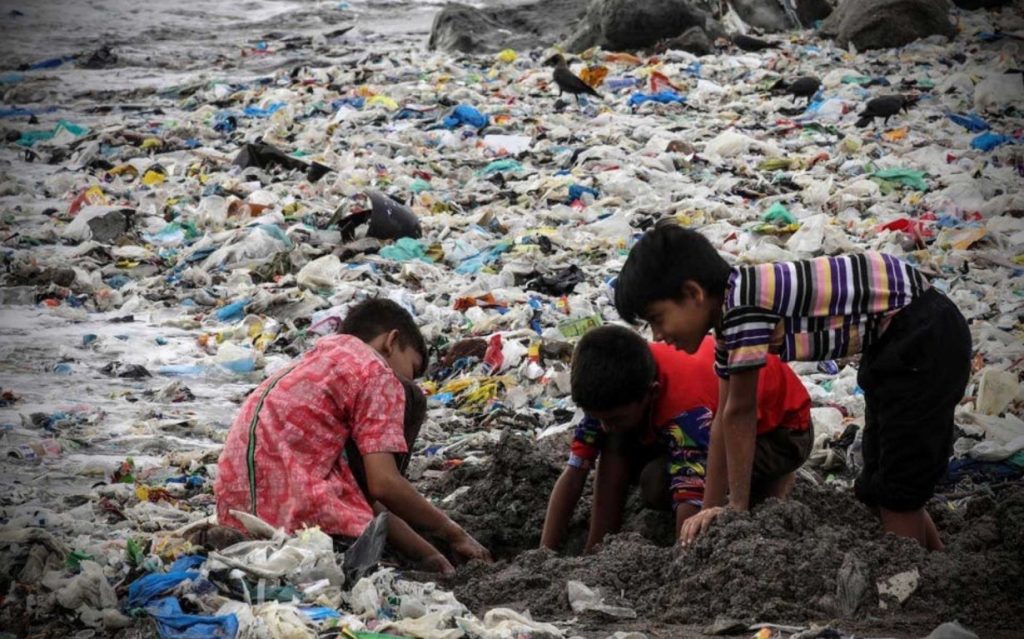
Through citizen-led initiatives, by Earth5R, has made significant strides in waste removal efforts along the riverbanks.
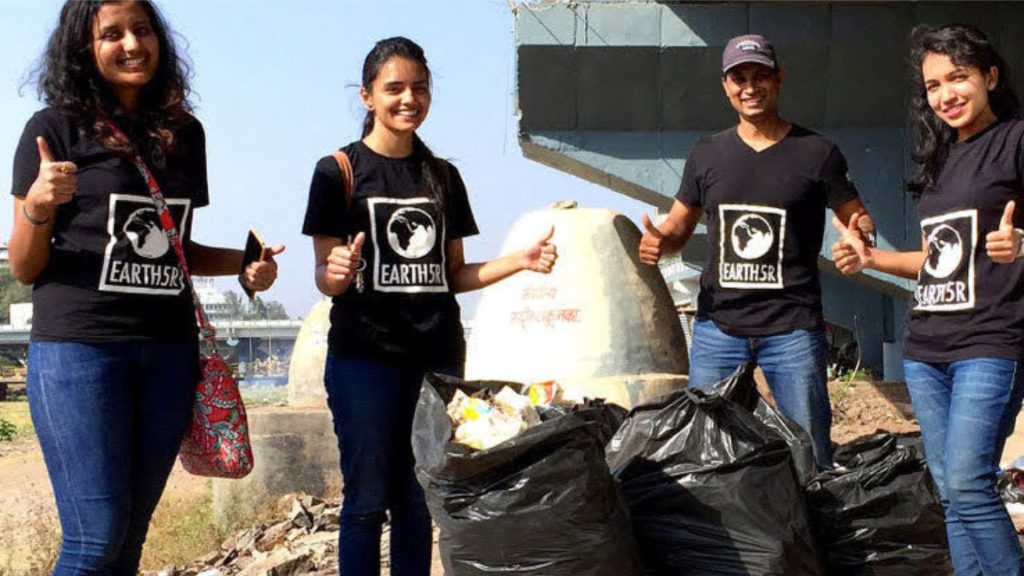
Earth5R’s collected waste for recycling.
Similarly, in Pune, pollution from sewage and industrial waste has degraded the water quality of the Mula-Mutha River, impacting marine life and the surrounding ecosystem.
Earth5R initiated a clean-up campaign, actively engaging residents in riverbank maintenance and facilitating efforts to reduce plastic waste.
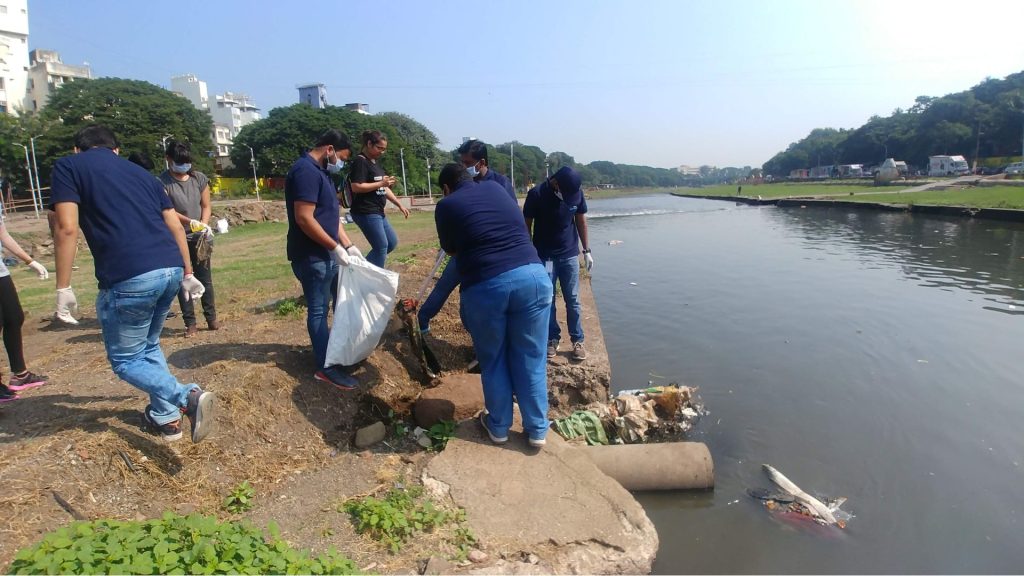
Earth5R initiated a river cleanup project at the Mula Mutha River in Pune.
These initiatives bring out Earth5R’s commitment to addressing water pollution challenges and promoting sustainable solutions for cleaner and healthier waterways.
Lake Restoration Programs
Lake restoration programs are essential for restoring declining water bodies and preserving aquatic ecosystems.
Various techniques are employed for lake restoration, including mechanical dredging to remove sediment buildup, aeration to increase oxygen levels, and the introduction of beneficial microorganisms to enhance water quality.
The restoration of Nal Sarovar Lake in Gujarat, India, stands as a proof to successful lake restoration efforts.
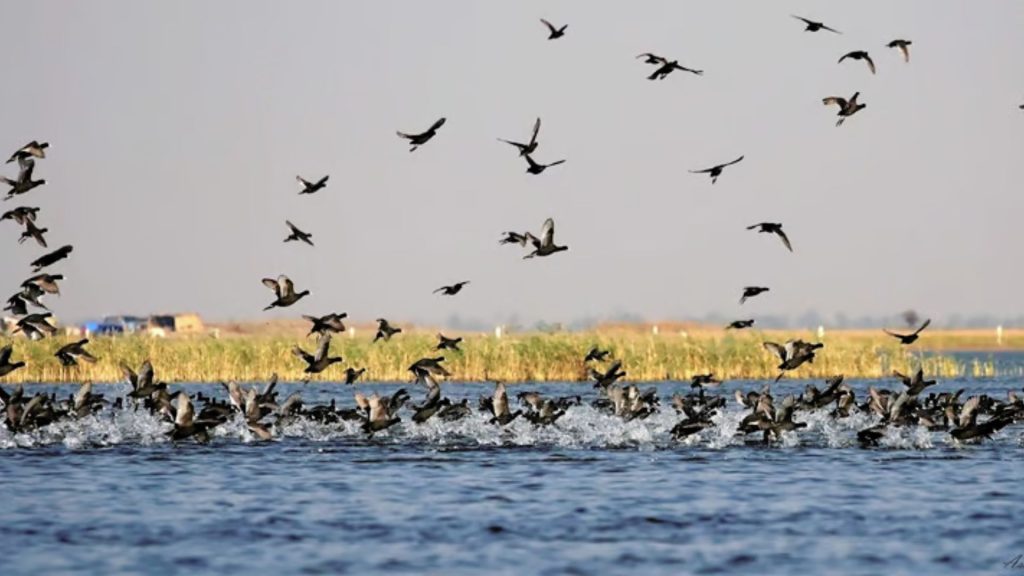
Restoration of Nal Sarovar Lake.
The initiative focused on several key aspects, including desilting the lake bed to improve water depth and quality.
Dams were also constructed to prevent soil erosion, safeguarding the lake’s integrity.
Besides, native vegetation was strategically planted along the shoreline, contributing to the stabilization of the ecosystem and promoting biodiversity.
This approach not only revitalized the lake but also ensured its long-term sustainability, benefiting both the environment and local communities.
Water Filtration Programs and WHO’s WASH Program
Water filtration programs are crucial for ensuring access to clean and safe drinking water, particularly in regions facing water contamination challenges.
Various methods are employed to clean water, ranging from traditional filtration techniques to advanced technologies.
WHO has launched the “Water, Sanitation and Hygiene (WASH) program,” which focusses the importance of access to clean water for public health
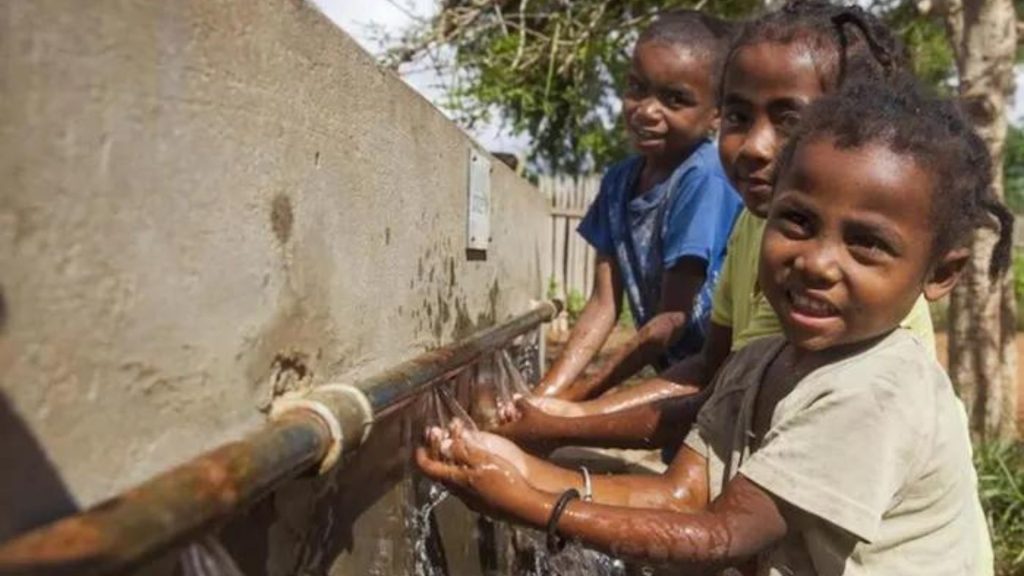
Water, Sanitation, and Hygiene (WASH) Program by WHO.
The program advocates for the implementation of sustainable solutions such as household water treatment systems, point-of-use filtration devices, and community-level water purification plants.
These solutions aim to remove contaminants, pathogens, and impurities from water sources, thereby reducing the risk of waterborne diseases and improving overall health outcomes.
By promoting effective water filtration programs, WHO aims to address water quality issues and ensure universal access to safe drinking water for communities worldwide.
Tata Chemicals SWACH Initiative for Water Purification
Several organizations, including Tata Chemicals, have been at the forefront of providing access to clean water filtration solutions.
One notable example is Tata chemicals initiative, Swach, launched on December 7, 2009, in Mumbai, India. Marketed as the, world’s most cost-effective water purifier.
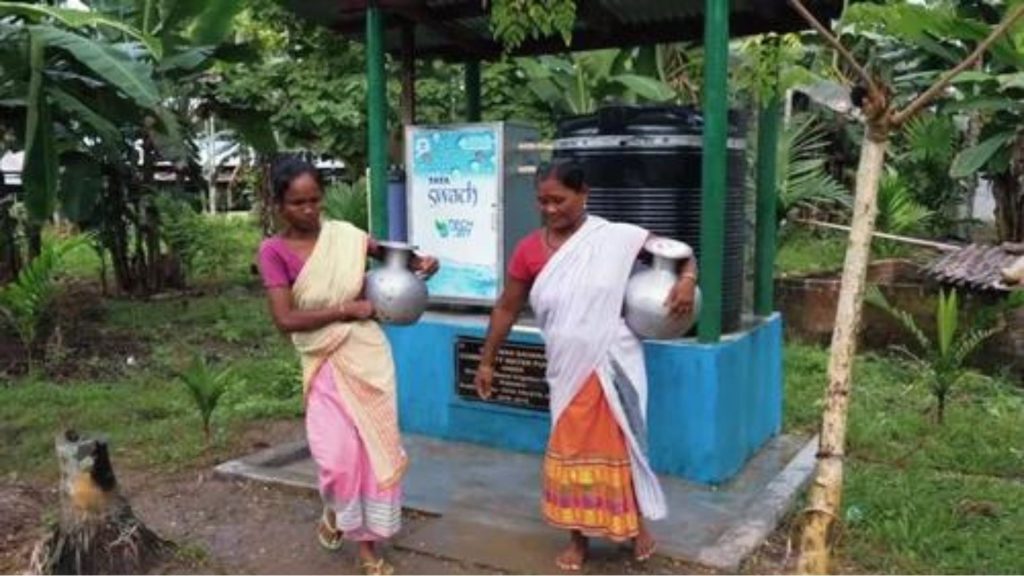
TATA Chemicals Water Purification Initiative, SWACH.
Swach embodies Tata’s commitment to innovation for addressing the needs of the base of the pyramid market.
Through Swach, Tata Chemicals has funded international programs aimed at improving access to clean drinking water.
Earth5R, in collaboration with Swiss Staff Foundation For Children In Need has implemented sustainability programs focused on installing water filters in schools.
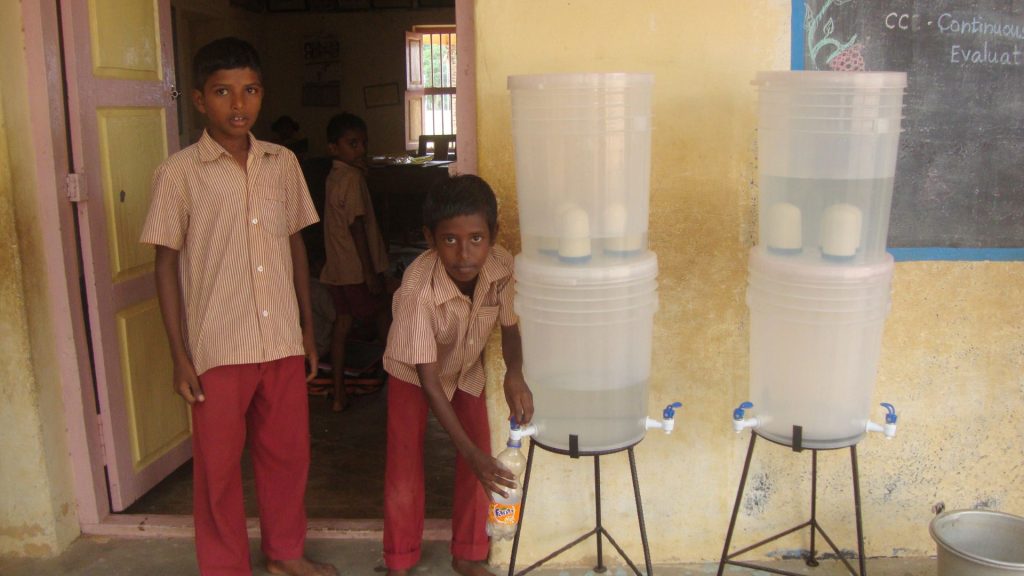
Earth5R’s program of installing water filters in schools.
These initiatives aim to provide clean and safe drinking water to children, promoting better health outcomes and enhancing educational opportunities.
Addressing the challenge of water scarcity and inequitable access to clean water requires multifaceted solutions.
Community Engagement in Water Conservation
Community-based water management systems empower local residents to take charge of water distribution, ensuring fairness and sustainability.
Additionally, promoting rainwater harvesting techniques can augment water supply, particularly in areas prone to scarcity.
Groundwater recharge methods, such as percolation pits and recharge wells, play a vital role in replenishing aquifers and sustaining groundwater levels.
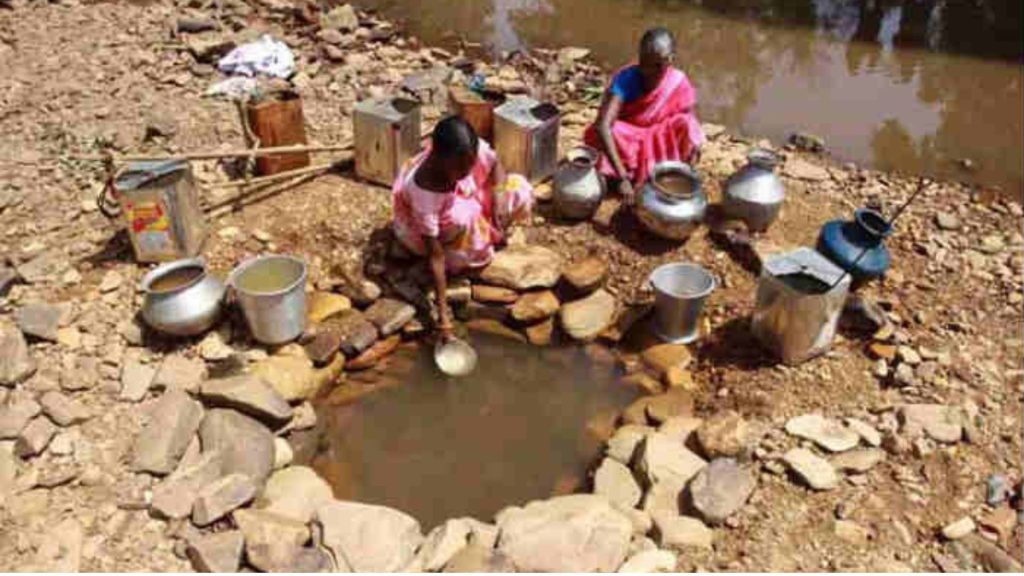
Community Engagement in Water Conservation
Water conservation practices at the household and community levels further alleviate demand pressure. Moreover, investing in robust water supply infrastructure is essential for enhancing accessibility and quality.
By implementing these solutions globally and encouraging community engagement, we can mitigate water scarcity and ensure equitable access to clean water for all members of society.
In addressing water-related challenges, collaborative efforts and innovative solutions are imperative.
Earth5R leads corporate social responsibility initiatives, partnering with companies to launch impactful programs aimed at improving access to clean water.
Together, let’s create a more sustainable future where clean water is accessible to all.




